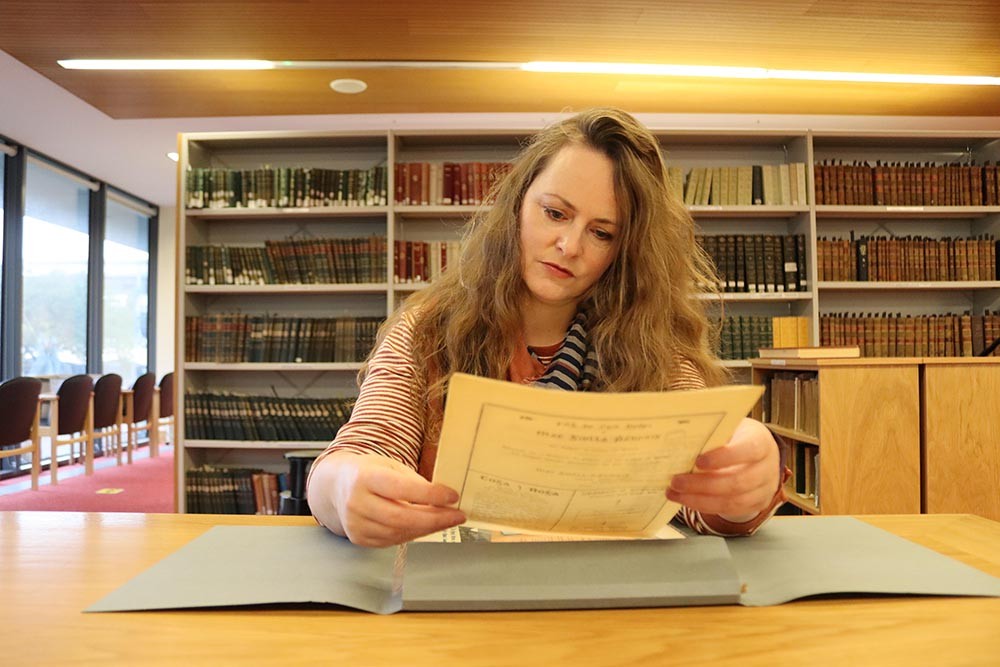
A project which saw over 200 archival terms entered into the Irish language lexicon earlier this year, has now led to those terms being officially recognised by the International Council on Archives.
The research work was instigated by Project Archivist Niamh Ní Charra after she noticed issues with translated terminology when cataloguing the iconic Conradh na Gaeilge archive in NUI Galway.
The 200 Irish language archival terms have been formally recognised by the International Council on Archives (ICA) – ensuring Irish is one of just 25 languages with such a seal of approval.
Ms Ní Charra, Project Archivist in the James Hardiman Library in NUI Galway, explained the significance of the Irish language taking its place in the international archival community.
“One of the important aspects of the archival profession when cataloguing a collection is the consistency in language used. Irish is a beautifully rich language and there’s always more than one way to translate something, but if a term is being used, it is important to stick to that one term, and without the existence of archival terms in Irish, this wasn’t possible.”
Ms Ní Charra launched the archival terminology project with Niamh McDonnell, of the National Archives of Ireland, in consultation with An Coiste Téarmaíochta of Foras na Gaeilge – the national Irish language terminology committee.
The initial list of terms was completed earlier this year, and welcomed by the community of archivists in Ireland. Ms Ní Charra took the project a step further and worked closely with Dr Luciana Duranti, University of British Columbia, Canada, one of the leaders behind the ICA’s Terminology Database.
The project led to 200 terms being approved for the ICA’s Multilingual Archival Terminology (MAT) database, for which Ms Ní Charra has been appointed Irish language administrator.

Among the terms are buanchoimeád (preservation) as distinct from caomhnú (conservation); Cuntas Ionchódaithe Cartlainne (Encoded Archival Description /EAD) and creat buanchoimeádta (preservation framework).
It is hoped that these resources will be used to make Irish language collections more accessible to all and more inclusive of Irish speakers, while also encouraging other language communities around the world to consider doing the same.
The Conradh na Gaeilge archive at NUI Galway includes a significant amount of material on language rights and fundraising campaigns, as well as the civil rights movement in the north and prisoners’ rights, including during the Hunger Strikes of 1980-81.
Dr John Walsh, Senior Lecturer in Irish, praised Ms Ní Charra’s work: “Terminology creation and dissemination is a key part of what is known as corpus language planning. In the Irish case, terminology has been developed by various individuals and agencies since before the foundation of the state but inconsistency was a problem for decades,” Mr Walsh said.
“The work of the Terminological Committee since the 1960s has brought greater purpose and consistency to the work and the development of online terminology resources for Irish in the past two decades has been particularly impressive. The addition of this archival terminology is an important contribution to corpus planning for grammar, spelling and terminology in the Irish language.”
Ms Ní Charra added: “I’m very proud to have instigated and led this project, and to see it to completion. I am also honoured, and feel very privileged to have contributed something special to both the archival and the Irish language communities.”
